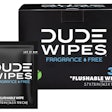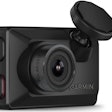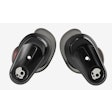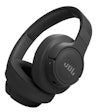By Rich Guida, Brand Manager, Howes
Winter is often described with words like “harsh,” “wrath,” “frigid,” and even “painful.” No one knows the reasoning behind those words more than the brave men and women of the trucking industry who head out into the brutal elements all season long. Below are just some of the challenges they face and the knowledge they’ve shared about how to deal with them.
Gelled Fuel and Clogged Fuel Filters
In cold weather, diesel trucks run the risk of experiencing gelled fuel and clogged or frozen fuel filters. The concern is greatest when you start out in a warmer climate and travel into a colder one on the same tank of fuel. The reason behind this is that fuel dispensed in places with warmer temperatures is not always treated with preventive additives that help you avoid gelling. While the fuel may be fine in places with mild weather, it could pose real problems as you head into a place where the weather is more extreme.
Some truck drivers prefer to idle their truck when stopped to allow the cabin to heat up the filter and keep ice or gel from clogging it. But that can be costly and even ineffective, especially if you’re just coming off the road. Instead, you should always try to prepare your fuel for colder temperatures by adding a quality winter additive before heading anyplace cold. At the very least, you should have a solution on hand should a problem occur, like carrying a rescue product that can help in an emergency situation.
Being prepared is always key and fuel system preparation is no exception. With Howes Diesel Treat, the number one trusted anti-gel on the market, you can be sure to prevent gelling by using it at every ll-up. In the event of missed treatments or over-the-top extreme weather, Howes Diesel Lifeline can help bail you out of any gelling or icing situation. The only alcohol-free winter rescue product, it will safely and easily get you back on the road fast, guaranteed.
Ice and Snow
Another big winter challenge is navigating through ice and snow. However, there are things that you can do to help limit the risks that come with driving in a less than ideal environment. First, simply keep up with your truck’s preventive maintenance schedule. This helps you to avoid equipment failure in the thick of a storm. Next, be sure your truck is equipped with seasonal tires that have proper tread and pressure. This will help prevent you from sliding on dangerous roads. Also, take your turns slowly and steadily. Hidden patches of ice can spell disaster, especially if you’re taking a sharp turn.
The Need for Speed
Although it may be tempting to travel as quickly as possible through unpleasant weather, it is imperative to take things slow when you are dealing with a winter storm. While speed is technically in a driver’s control, limiting it can be an easy rule to forget about, especially if there are other drivers on the road passing you by. It’s far more dangerous to try to speed through a storm than it is to take your time and pay extra attention to the task at hand.
Traffic Clusters
In icy winter conditions, it’s best to stay clear of traffic as much as possible. While it is common for cars and trucks to “cluster” and drive in tandem with one another, it’s actually safest to keep as much distance as possible from other vehicles. You should try your best to have a buffer zone in both the front and the back of your truck. The more space you have on any side, the better.
Faulty Equipment
It is always important to pay attention to the state of your truck’s equipment, but it’s even more crucial in the winter season. When you are driving in inclement weather, pay attention to any warning lights or signals that might indicate things are not running as well as they should be. The last thing you want is to be stranded on a remote highway with a broken-down truck. It is equally important to pay attention to the function of the trailer that you are pulling, keeping a critical eye on the trailer tires to ensure that they do not freeze.
Blistering Cold
While hopefully you never find yourself stuck due to any of these challenges, if you ever do, you don’t want to become a victim to the cold. Instead, always carry a well-stocked emergency kit. It should include things such as a first aid kit, water, a solar blanket, gloves, and an extra set of warm clothing. It should also have a properly checked fire extinguisher, jumper cables, reflective triangles, and road flares. And just in case gelling or icing happens to be the cause of your problems, you should always have a bottle of Diesel Lifeline at the ready.
Wherever your travels take you this winter, your friends at Howes wish you a safe and challenge-free season, with hopes that spring arrives sooner rather than later. For more information on how Howes can help get you through the season and how the powerful “one-two punch” of Diesel Treat and Diesel Lifeline can help you beat all winter fuel challenges, visit howesproducts.com











